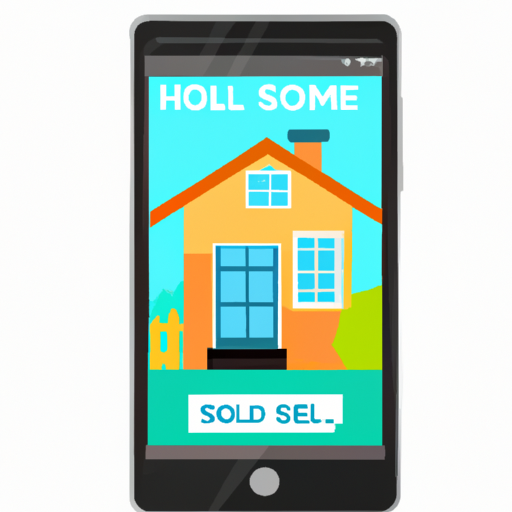This section introduces iBuyers, companies using technology to make quick cash offers on homes. It explains the benefits of selling to an iBuyer, such as speed and convenience, but also mentions potential drawbacks. The section also discusses important factors to consider, such as offer price, fees, and the reputation of the iBuyer. It compares iBuyers to traditional agents in terms of convenience, certainty of sale, and costs. Lastly, it addresses common concerns and misconceptions about iBuyers.
In today’s rapidly evolving real estate market, a new player has emerged: the iBuyer. But what exactly is an iBuyer, and what do you need to know before selling your home to one? In this article, we will delve into the concept of iBuyers, explore their benefits and drawbacks, and discuss key factors to consider before choosing an iBuyer for your home sale. Additionally, we will compare iBuyers to traditional real estate agents, and address common concerns and misconceptions through frequently asked questions. Whether you’re a homeowner looking to sell or simply curious about this innovative approach to home buying and selling, this article will provide you with valuable insights and information. So, let’s dive in and discover the world of iBuyers.
- 1. Introduction to iBuyers: Understanding the Concept and Benefits
- 2. The Pros and Cons of Selling Your Home to an iBuyer
- 3. Key Factors to Consider Before Choosing an iBuyer for Your Home Sale
- 4. Exploring Alternative Selling Options: How iBuyers Compare to Traditional Real Estate Agents
- 5. Frequently Asked Questions about iBuyers: Addressing Concerns and Misconceptions
1. Introduction to iBuyers: Understanding the Concept and Benefits

Introduction to iBuyers: Understanding the Concept and Benefits
In today’s fast-paced real estate market, a new trend has emerged – the rise of iBuyers. But what exactly is an iBuyer? In simple terms, an iBuyer refers to a company or platform that uses technology and data analysis to make quick cash offers on homes. These companies aim to streamline the home selling process by providing homeowners with a convenient and hassle-free way to sell their properties.
The concept of iBuyers originated from the need to simplify the traditional home selling experience. Selling a home can often be a time-consuming and stressful process, involving numerous showings, negotiations, and paperwork. iBuyers aim to eliminate these challenges by offering a faster and more convenient alternative.
One of the main benefits of selling your home to an iBuyer is the speed at which the process can be completed. Traditional home sales can take several months, but an iBuyer can often provide an offer within days or even hours. This can be particularly appealing for homeowners who need to sell their property quickly due to job relocations, financial hardships, or other life circumstances.
Additionally, iBuyers often offer a simplified and streamlined selling experience. Homeowners can typically request an offer online by providing basic information about their property. If the initial offer is appealing, a representative from the iBuyer will schedule an inspection to assess the condition of the home. Based on the inspection results, a final offer will be presented to the homeowner. If accepted, the sale can be closed in a matter of weeks.
Another advantage of selling to an iBuyer is the convenience it offers. Homeowners can avoid the hassle of preparing their homes for showings, hosting open houses, and dealing with potential buyers. iBuyers typically purchase homes in “as-is” condition, meaning sellers do not have to invest time and money into repairs or renovations.
However, it is important to note that selling to an iBuyer may not
2. The Pros and Cons of Selling Your Home to an iBuyer

When considering selling your home, you may come across the term “iBuyer.” An iBuyer, short for instant buyer, is a company that uses technology and data analysis to make quick cash offers on homes. While this may seem like an attractive option, it’s essential to weigh the pros and cons before deciding to sell your home to an iBuyer.
One of the significant advantages of selling your home to an iBuyer is the speed and convenience they offer. Traditional home selling processes can be lengthy and involve various steps, such as finding a real estate agent, staging the home, hosting open houses, and negotiating offers. With an iBuyer, you can skip most of these steps and receive a competitive cash offer within days. This can be particularly appealing if you’re in a time-sensitive situation or need immediate access to funds.
Additionally, selling to an iBuyer eliminates the need for home repairs or renovations. Unlike selling through a traditional real estate agent, where you may be required to make costly updates to attract buyers, iBuyers typically purchase homes in their current condition. This can save you time, money, and the hassle of dealing with repairs and upgrades.
However, selling your home to an iBuyer also has its drawbacks. One major disadvantage is the potential for receiving a lower offer compared to what you might get on the open market. iBuyers factor in various costs, such as repairs, holding costs, and their profit margin, when making offers. While this convenience may come at a price, it’s crucial to consider whether the speed and convenience outweigh the potential financial difference.
Another potential downside is the limited geographical reach of iBuyers. These companies typically operate in select markets and may not be available in all areas. Therefore, if you live in a less-populated or remote location, you may not have access to iBuyer services. It’s essential to research and confirm whether iBuyers operate in your area before considering this option.
Lastly
3. Key Factors to Consider Before Choosing an iBuyer for Your Home Sale

When considering selling your home to an iBuyer, there are several key factors you should take into account before making your decision. These factors can greatly impact the overall outcome of your home sale and ensure that you are making the best choice for your needs. Here are three important factors to consider:
1. Offer Price: One of the primary reasons homeowners consider selling their homes to iBuyers is the convenience and speed of the process. However, it’s crucial to carefully evaluate the offer price provided by the iBuyer. While iBuyers may offer a quick solution, they typically purchase homes at a discounted price compared to the traditional market. It’s essential to weigh this discounted price against the convenience factor and determine if it aligns with your financial goals.
2. Fees and Costs: Before choosing an iBuyer, it’s essential to understand all the associated fees and costs involved in the transaction. While iBuyers may offer a streamlined process, they often charge additional fees, including service fees, transaction fees, and repair costs. These expenses can significantly impact your net proceeds from the sale. Therefore, it’s crucial to carefully review and compare the fees and costs of different iBuyers to ensure you are getting the best deal.
3. Reputation and Reliability: Another important factor to consider before choosing an iBuyer is their reputation and reliability. Research the iBuyer’s track record, customer reviews, and any potential complaints or legal issues. It’s crucial to work with a reputable iBuyer who has a proven track record of successfully closing transactions and providing a positive experience for homeowners. Doing thorough research will help you avoid any potential scams or unfavorable outcomes.
In conclusion, while selling your home to an iBuyer can offer convenience and a speedy process, it’s essential to consider these key factors before making a decision. Evaluate the offer price, fees, and costs associated with the transaction, and thoroughly research the reputation and reliability of the iBuyer. By carefully considering these
4. Exploring Alternative Selling Options: How iBuyers Compare to Traditional Real Estate Agents

When it comes to selling your home, there are a variety of options available to homeowners. One alternative selling option that has gained popularity in recent years is working with an iBuyer. But how do iBuyers compare to traditional real estate agents? Let’s explore the differences.
1. Convenience and Speed: One of the main advantages of working with an iBuyer is the convenience and speed they offer. iBuyers use technology and data analysis to make quick cash offers on homes, often within a matter of days. This can be appealing to sellers who are looking for a fast and hassle-free selling process. On the other hand, traditional real estate agents typically follow a more traditional approach, which involves listing the home on the market, scheduling showings, negotiating offers, and closing the sale. This process can take several months, depending on the market conditions.
2. Certainty of Sale: iBuyers provide sellers with a certain level of certainty when it comes to the sale of their home. Once an iBuyer makes an offer and the seller accepts it, the sale is typically guaranteed. This eliminates the risk of a sale falling through due to financing issues or buyer contingencies. Traditional real estate agents, on the other hand, cannot guarantee the sale of a home. They rely on finding a qualified buyer who can secure financing and navigate the closing process successfully.
3. Costs and Fees: When comparing costs and fees, it’s important to note that iBuyers often charge higher fees compared to traditional real estate agents. iBuyers typically deduct a service fee, which can range from 6% to 15% of the home’s value, to cover their expenses and make a profit. Additionally, iBuyers may also deduct repair costs or other fees from the final sale price of the home. In contrast, traditional real estate agents typically charge a commission fee, which is usually around 5% to 6% of the home’s sale price. However, it’s
5. Frequently Asked Questions about iBuyers: Addressing Concerns and Misconceptions

Frequently Asked Questions about iBuyers: Addressing Concerns and Misconceptions
iBuyers have gained popularity in the real estate market as an alternative option for homeowners looking to sell their properties quickly and hassle-free. However, like any new concept, there are bound to be concerns and misconceptions surrounding iBuyers. In this section, we will address some frequently asked questions to help you gain a better understanding of iBuyers and make an informed decision when considering selling your home to one.
1. How do iBuyers determine the offer price for my home?
iBuyers use advanced algorithms and data analysis to determine the offer price for your home. They consider factors such as the location, size, condition, and recent sales data of similar properties in the area. This data-driven approach helps ensure a fair and competitive offer.
2. Are iBuyer offers lower than market value?
One common misconception is that iBuyer offers are significantly lower than market value. While it’s true that iBuyers typically offer slightly below market value to account for the convenience and speed they provide, the difference is often minimal. It’s important to remember that traditional home sales also involve expenses such as agent commissions, repairs, and holding costs, which can offset the perceived difference in offer price.
3. Will I have to pay any fees or commissions when selling to an iBuyer?
Selling to an iBuyer usually involves transaction fees, which are typically lower than traditional real estate agent commissions. However, it’s important to carefully review the terms and conditions of the iBuyer you choose, as fees can vary. Transparency is key, so make sure to ask about any additional costs involved in the transaction.
4. What happens if I don’t agree with the iBuyer’s offer?
If you’re not satisfied with the iBuyer’s offer, you are under no obligation to accept it. It’s always a good idea to compare multiple iBuyer offers and traditional
In conclusion, iBuyers have emerged as a convenient and efficient option for homeowners looking to sell their properties quickly and hassle-free. While there are undeniable benefits to working with an iBuyer, it is crucial to carefully consider the pros and cons before making a decision. Factors such as pricing, fees, and the overall condition of your home should be taken into account. Additionally, comparing iBuyers to traditional real estate agents can help determine which option aligns best with your needs and preferences. By addressing common concerns and misconceptions about iBuyers, this article aims to provide readers with a comprehensive understanding of this innovative home selling approach. Ultimately, whether you choose to sell your home to an iBuyer or explore alternative selling options, it is important to thoroughly research and weigh your choices to ensure a successful and satisfactory transaction.

